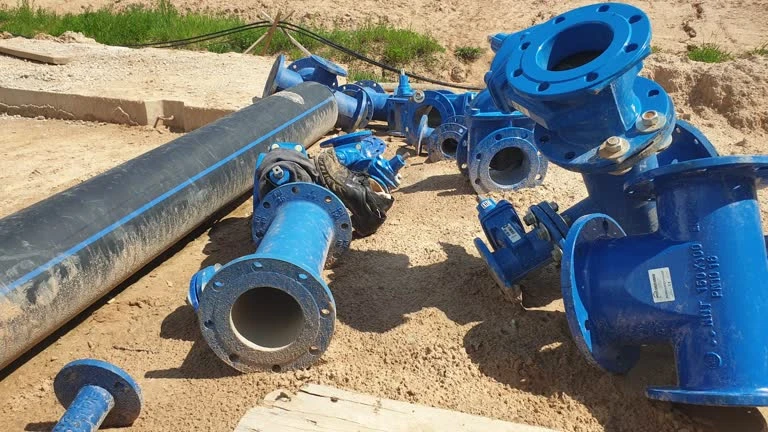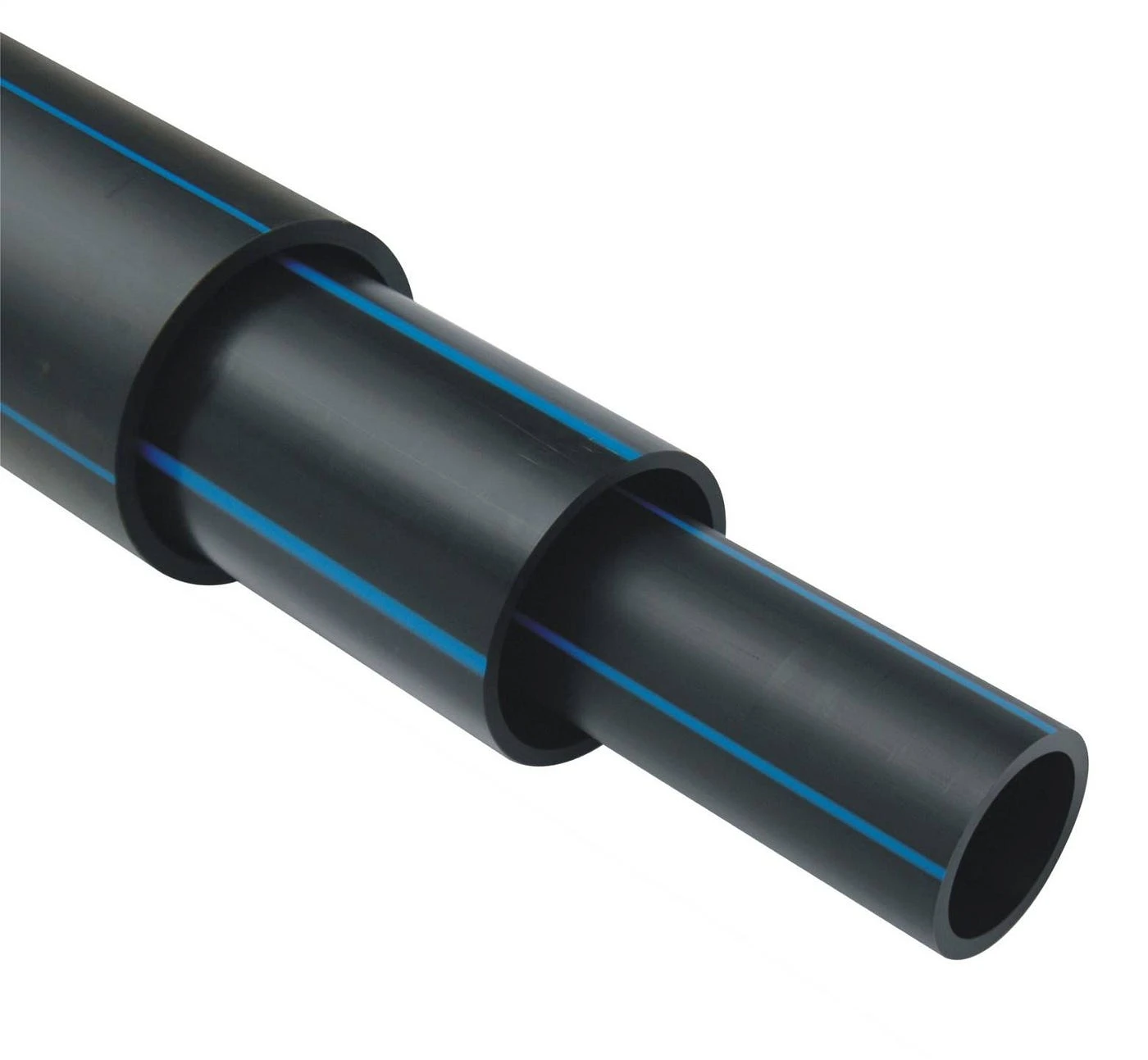In the rapidly developing infrastructure landscape of South Africa, the supply of high-quality materials is essential for the successful execution of major projects. One such project is the expansion of the Polokwane Waste Water Treatment Plant, which recently received a significant boost with the supply of 19 kilometers of high-density polyethylene HDPE pipe from Rocla. This development not only enhances the plant’s capacity but also underscores the critical role of HDPE pipes in modern wastewater management. In this article, we will explore the importance of HDPE pipes, their specific applications in wastewater treatment, and the benefits they bring to projects like the one in Polokwane.

Understanding HDPE Pipe
High-density polyethylene (HDPE) pipes are make from a versatile thermoplastic material known for its strength, durability, and flexibility. These pipes are increasingly being use in various applications due to their numerous advantages over traditional materials such as concrete and metal.
Advantages of HDPE Pipe
- Durability: HDPE pipes are resistant to corrosion, chemical exposure, and environmental stress, ensuring a long service life often exceeding 50 years.
- Lightweight: The lightweight nature of HDPE makes it easier to transport and install compared to heavier materials.
- Flexibility: HDPE pipes can bend and flex, allowing them to adapt to changing ground conditions without breaking or leaking.
- Low Maintenance: Once installed, HDPE pipes require minimal maintenance, resulting in cost savings over the lifespan of the project.
- Environmental Resistance: HDPE is not susceptible to rust or corrosion, making it an ideal choice for wastewater applications where exposure to various chemicals is common.
The Role of HDPE Pipes in Wastewater Treatment
Wastewater treatment plants are critical for managing sewage and industrial waste, ensuring that water is treate and returned to the environment safely. HDPE pipes play a vital role in the infrastructure of these plants, facilitating the transport of wastewater, treated water, and sludge.
Applications of HDPE Pipes in Wastewater Treatment
- Influent and Effluent Systems: HDPE pipes are use to transport influent (incoming wastewater) to treatment facilities and effluent (treated water) to discharge points.
- Gravity and Pressure Systems: These pipes can be use in both gravity-fed and pressure-driven systems, providing flexibility in design and application based on the specific requirements of the treatment plant.
- Chemical Handling: HDPE pipes are resistant to many chemicals commonly found in wastewater, making them suitable .
- Sludge Removal: HDPE pipes are effective for transporting sludge from treatment processes to disposal or further processing facilities.
The Polokwane Waste Water Treatment Plant Project
The Polokwane Waste Water Treatment Plant is undergoing significant upgrades to enhance its capacity and efficiency in handling wastewater. Rocla’s supply of 19 kilometers of HDPE pipes is a key component of this expansion, addressing several critical needs.
Meeting Increased HDPE pipe Capacity Needs
As the population of Polokwane continues to grow, so does the demand for effective wastewater treatment. The addition of HDPE pipes will help the plant manage increased volumes of wastewater, ensuring that treatment processes remain efficient and effective.
Enhancing Reliability and HDPE pipe Efficiency
The use of HDPE pipes in the Polokwane project ensures that the infrastructure is not only durable but also reliable. With their resistance to corrosion and chemicals, HDPE pipes reduce the risk of leaks and failures, which can disrupt operations and .
Supporting Local Economy
The project also supports the local economy by creating jobs during the installation and maintenance phases. Additionally, utilizing local suppliers like Rocla promotes economic growth within the region.
Environmental Benefits of HDPE Pipe
In an era where sustainability is paramount, the environmental benefits of using HDPE pipes in wastewater treatment are noteworthy.
1. HDPE pipe Recyclability
HDPE is a recyclable material, contributing to the circular economy. Old pipes can be recycle and repurposed, reducing waste and promoting sustainability.
2. HDPE pipe Reduced Carbon Footprint
The lightweight nature of HDPE pipes results in lower transportation emissions. Additionally, their longevity reduces the need for frequent replacements, further minimizing environmental impact.
3. Water Conservation
By ensuring that wastewater is efficiently transporte and treate, HDPE pipes help conserve water resources. Effective treatment processes enable the reuse of water for irrigation and industrial purposes.
Challenges and Solutions
While HDPE pipes offer numerous advantages, challenges may arise during their installation and use.
1. Installation Challenges
Proper installation is critical for ensuring the performance of HDPE pipes. Careful attention must be pai to joint integrity and alignment. Training and certification for installation crews can mitigate these risks.
2. Temperature Sensitivity
HDPE can be sensitive to temperature variations, which may affect its flexibility and performance. Selecting the appropriate grade of HDPE for specific conditions can address this challenge.
3. Chemical Compatibility
While HDPE pipes are resistant to many chemicals, it is essential to conduct compatibility assessments for specific wastewater compositions to avoid potential issues.
Conclusion
The supply of 19 kilometers of HDPE pipes by Rocla for the Polokwane Waste Water Treatment Plant is a significant development for both the facility and the local community.
With their numerous advantages, including durability, flexibility, and low maintenance requirements, HDPE pipes are becoming the preferred choice for wastewater treatment applications.
FAQs
- What are HDPE pipe primarily use for? HDPE pipes are primarily use for transporting water, sewage, and industrial waste in various applications.
- How long do HDPE pipe last? HDPE pipes typically have a lifespan of over 50 years when installed correctly and maintained.
- Are HDPE pipe environmentally friendly? Yes, HDPE pipes are recyclable and have a lower environmental impact compared to traditional materials like metal and concrete.
- What are the advantages of using HDPE pipe over other materials? HDPE pipes are lightweight, corrosion-resistant, flexible, durable, and require minimal maintenance.
- How does the use of HDPE pipe benefit wastewater treatment processes? HDPE pipes enhance the reliability and efficiency of wastewater treatment by ensuring effective transport of influent, effluent, and sludge.


















